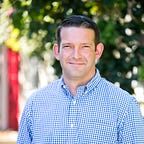#CNUFuture
As part of her President’s address to CNU 26, Lynn Richards asked what the next big goal of CNU should be. Over the past three decades, CNU has shifted the conversation about how to build communities to the point where the American Planning Association, Urban Land Institute, the realtors, and even huge production home builders have started to adopt some new urbanists language and even more of their ideas.
But as Lynn pointed out, CNU’s progress has hit something of a plateau and it needs a new goal for which to strive. Lynn asked that every attendee at CNU 26 tweet at her with the hashtag #CNUFuture with grand ideas of what CNU’s next goals should be.
One reoccurring theme of CNU 26 has been that we need to be relentlessly, enthusiastically, and unapologetically incremental and urban. CNU has spent a lot of time focused on the national conversation throughout its history, and it needs to turn to local conversations. CNU has enough reach, it has enough members, that if they get active in their home towns we can make significant changes at a level where our actions can make the most impact.
CNU has tried to convince policy makers of the benefits of urbanism. This is the hard way to affect the mind of policy makers. The easiest way to change the minds of policy makers is to literally change the minds of policy makers, to change the people in power to ones that are more sympathetic to the CNU point of view. We need to encourage and support CNU members running for office.
I met a number of city council members here at CNU 26, but I didn’t meet any other candidates. I’d like to see a decade long undertaking to get more urbanists in positions of power in city hall. To that end, I’m thinking of putting together a series of panels to be held at CNU 27 in Louisville next year to talk about why we need more people to run, how to run, and how to effectuate change once in office.
From there, I’d like to see CNU create a 501(c)4 to carry on supporting and training urbanists candidates. CNU can build of a training pipeline to get their members into office starting in 2020 and building on successes through subsequent elections throughout the 2020s. With this strategy we can get urbanists into city halls in thousands of towns across the country.
We need CNU to be relentlessly, enthusiastically, unapologetically local in its politics. Cities are designed and built at the local level, it’s where we need to focus our political energy.
[Note: This post about CNU26 is a departure from my normal series on how local communities can address global issues related to climate change, housing affordability, the local economy, the fiscal solvency of cities, and public health.]
